After his induction to the Greater St. Louis Amateur Baseball Hall of Fame, WFAA Chief Meteorologist Pete Delkus reflects on his successes on the baseball diamond.
ST. LOUIS — He’s the person North Texans rely upon to keep them safe when the skies get dark and dreary. He’s the one who makes us laugh when the heat across the region mostly makes us want to cry.
He’s serious when he needs to be. And quick with a sarcastic quip when appropriate.
North Texans know the Pete Delkus they see in front of the camera. But they don’t all know the path that led to him becoming WFAA’s Chief Meteorologist.
See, before his career in weather, Delkus had a career in baseball. And a truly promising one at that.
That story began on the ballfields of the St. Louis suburb Collinsville, Illinois, where he was raised in a blue-collar family, with his father working for the city.
“I was a pitcher right here,” Delkus said during a trip to those very fields during a recent visit home. “I pitched and I caught. [I remember] spending time here with my dad, working on these fields to get them ready so we could play.”
His perseverance and work ethic, Delkus said, was formed by those hours spent both working and playing alongside his father in the fields.
But he found his life’s earliest passion on the pitcher’s mound.

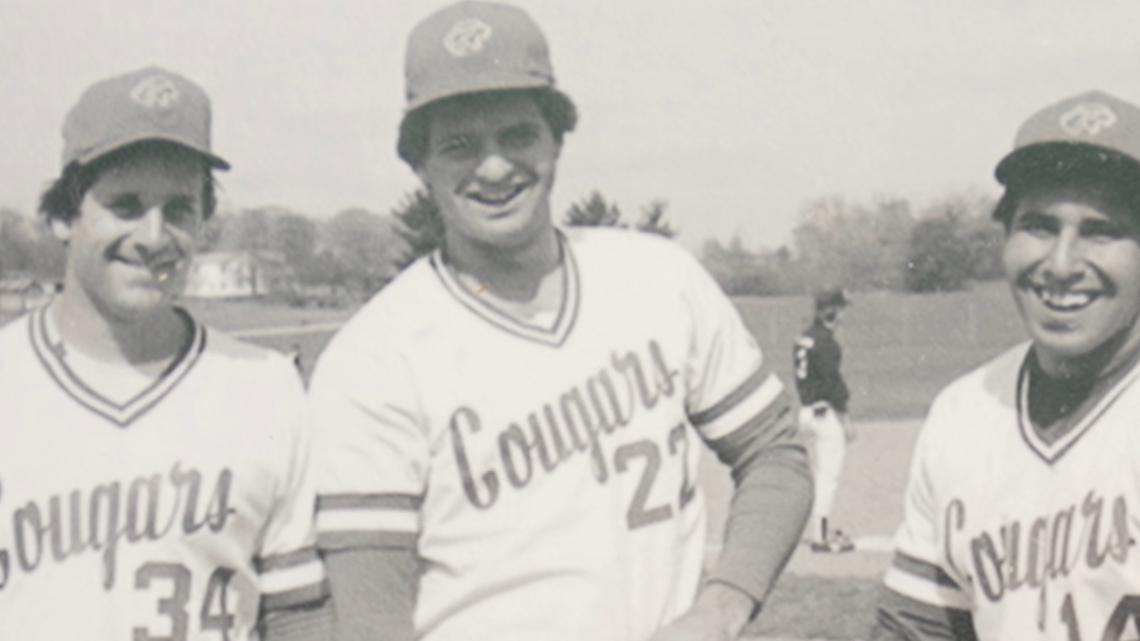
“My dream, like all little boys, was I wanted to be a Major League player,” he said.
The submarine pitching style he’d developed was anything but ordinary. But he was good — not just in Little League or high school, but at the next level, too. He set the school record for wins at Southern Illinois University Edwardsville. And, in 1985, he was named to the NCAA Div. II All-America Second Team.
“There was no better guy to play with,” said his teammate Bob Wilber. “He was just a fantastic guy, and he was one of the best pitchers I ever played with. He was darn near unhittable.”

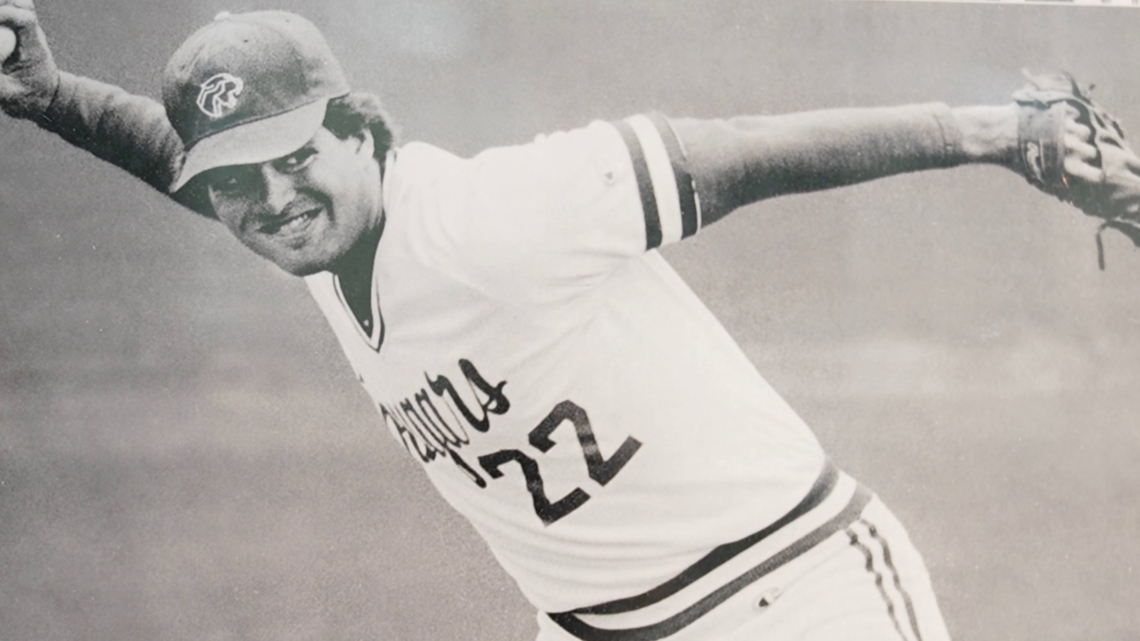
But nobody came calling for him after graduation, not even after he went unselected in the MLB Draft.
“I don’t know why nobody is gonna sign this guy — because he’s effective and he’s a bulldog,” Wilber remembered thinking at the time.
Then, just two days before Rookie League season was supposed to start, the phone rang at his parents’ house.
“I was sitting on my porch with my mom and dad, and my mom said, ‘Hey, there’s a phone call — it’s Jim Rantz with the Minnesota Twins,'” Delkus recalled. “I grabbed the phone, and he told me who he was, and he said, ‘Pete, we’d like to sign you to a contract, we’d like you to play baseball for us in our minor league system.'”
So Delkus packed his bags and took off for Elizabethton, Tennessee, home of the Twins’ Rookie Leagues affiliate.

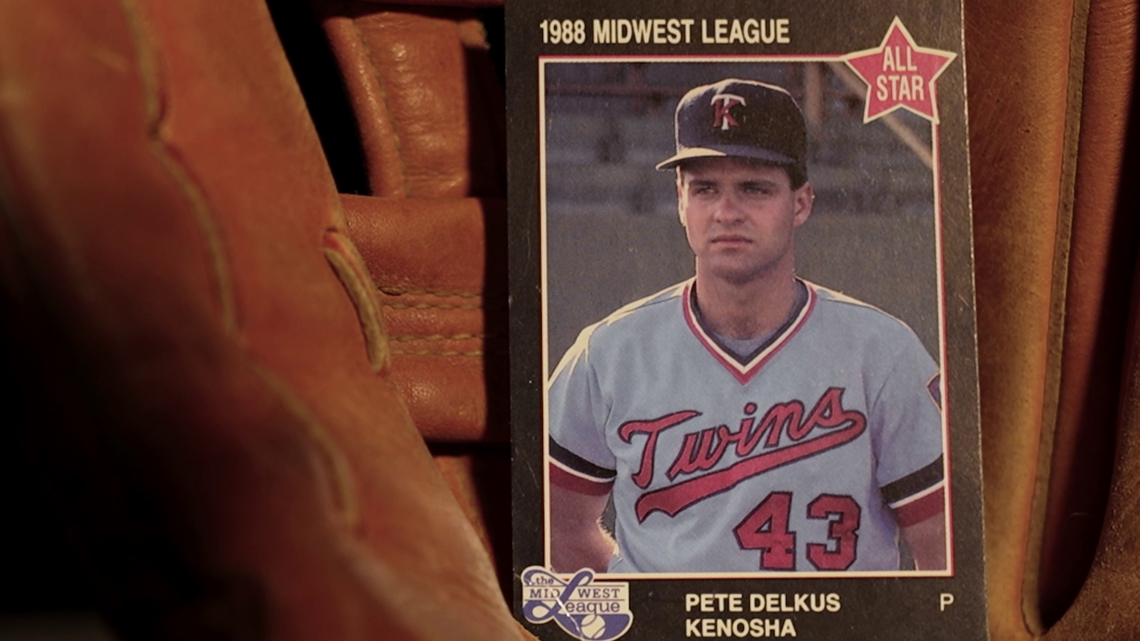
And the success he’d had earlier in his career once again translated to the next level, just as it always had. In his first appearance in his first game, he struck out every batter he faced.
His next stop was the A-level affiliate in Kenosha, Wisconsin, where Delkus pitched in 61 games, completing 68 innings and only giving up two earned runs.
“His earned run average, which is how many earned runs he averages giving up in a game, was so microscopic, a lot of people thought it was a typo,” Wilber said. [The Twins] named him their Minor League Player of the Year — for their entire system. It was a gigantic honor.”

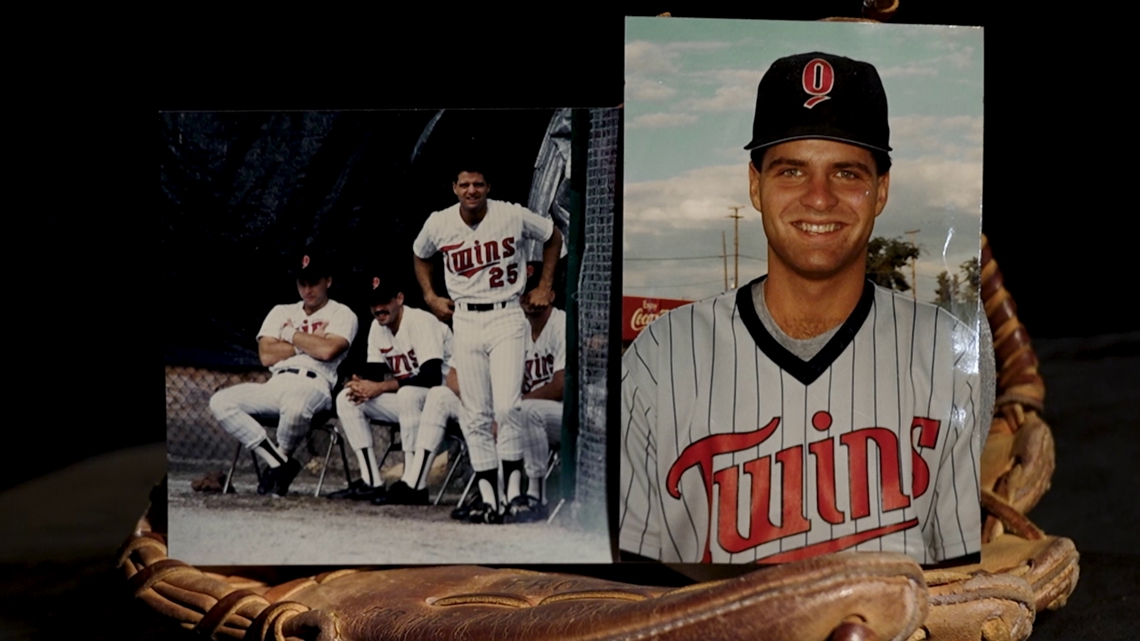
Next, he’d move on to Double-A ball in Orlando. Then came Triple-A in Portland, Oregon.
“You just watched him pitch, and how he competed against guys, and you just knew: Whoever is hitting off Pete is gonna have a tough day today,” said his teammate Bob Hughes.
Delkus was on the verge of realizing his dream.
“In my mind, I’m an athlete, I’m a baseball player,” Delkus said. “[I figured] when my 20-year Major League career was gonna end, I was gonna be a sportscaster.”
But his dream was shattered in an instant.

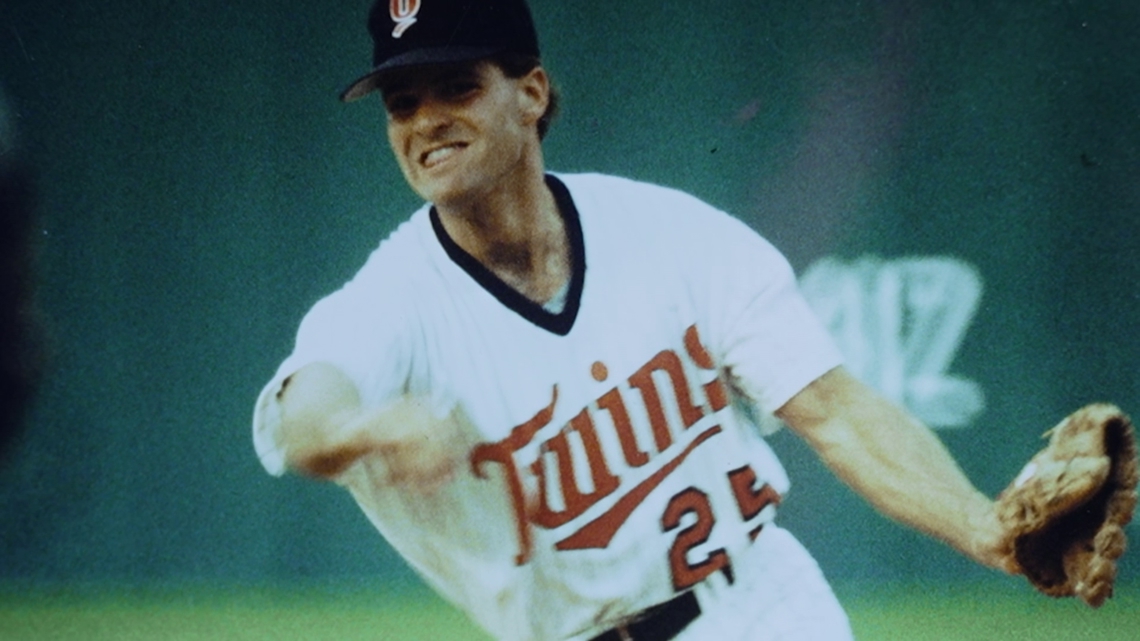
“The Major League team had invited me to Major League camps,” Delkus said. “I remember warming up in the bullpen, and I just remember feeling something strange in my arm. I had never been hurt before, but after two surgeries and several months of rehab, it was abundantly clear to me my baseball career was over… My dream came to an end, and it was one of the hardest things ever in my life.”
“He was on his way to the big leagues — don’t let anybody kid ya he was that good,” Wilber said, “And he probably would’ve had a long career if his elbow held out.”

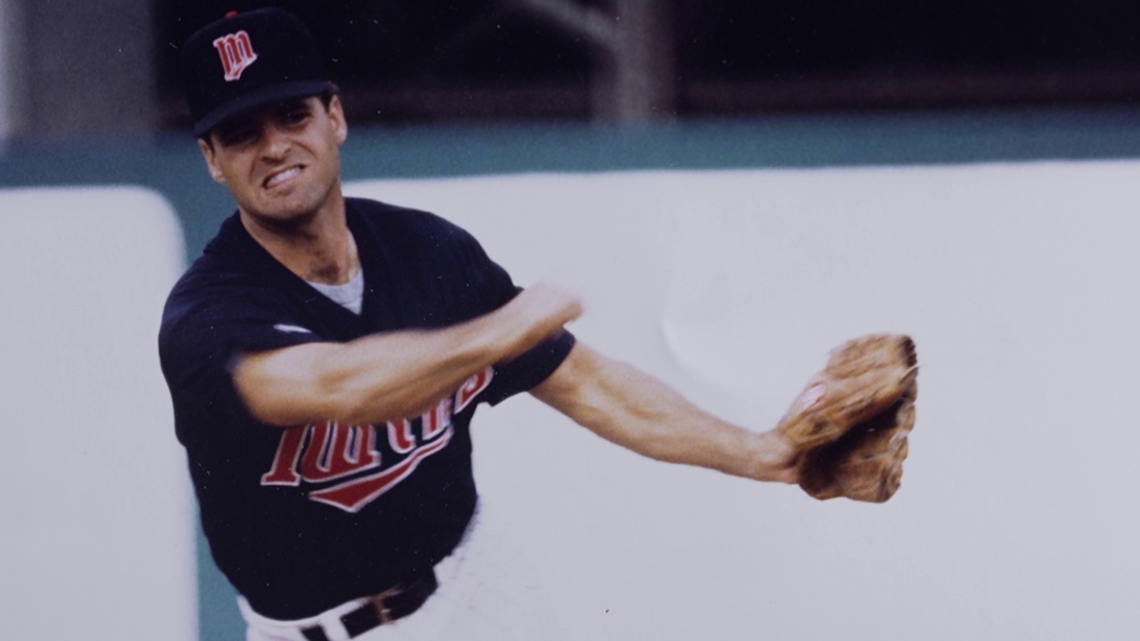
Then another phone call would come. And, once again, it would change his life’s path.
In the baseball offseason, Delkus had interned as a sports reporter at WFTV in Orlando.
“The guys in the sports department, they said, ‘Pete, we want to hire you, but we don’t have any openings in sports. do you want to do weather?” said Delkus.
It seemed another lifelong skill of his — the so-called “gift of gab” — had offered his life in the spotlight some very unexpected extra innings. And he settled into a new award-winning and decorated career not on the mound, but in front of the camera, warning audiences about the fronts and storms and tornados headed toward home plate.

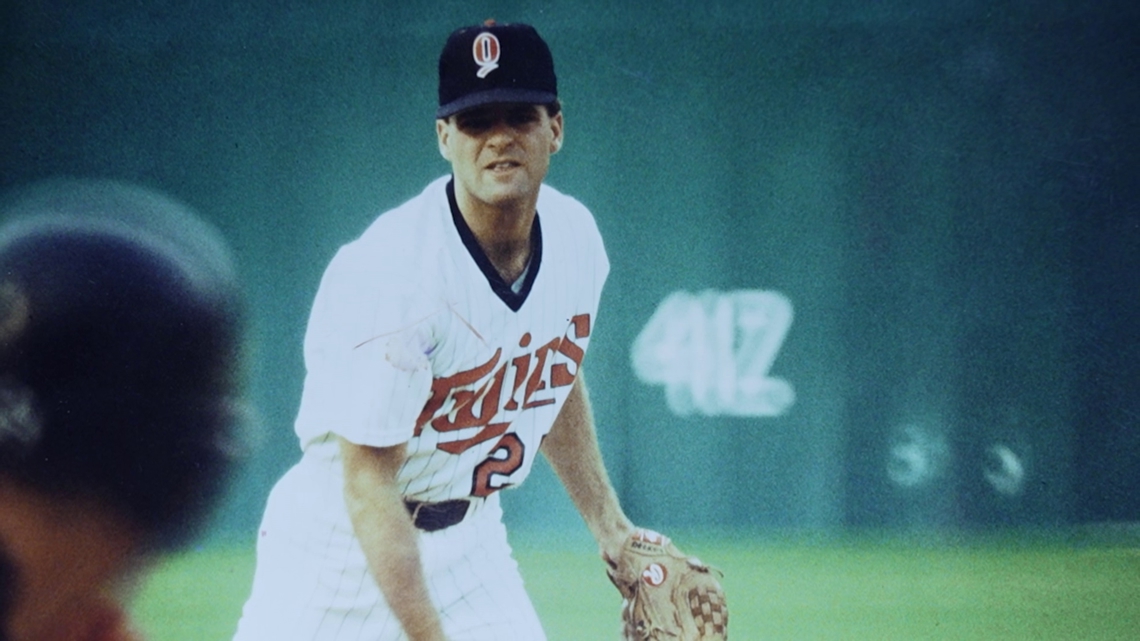
Still, on a recent stormy day back home in Illinois, his baseball life earned the recognition it was due. Delkus was honored for his glory days on the diamond with an induction into the Greater St. Louis Amateur Baseball Hall of Fame.
In his speech, Delkus thanked his baseball friends and coaches for helping shape him into the person he is today.
“Thank you, most importantly, for the gift that you’ve given me,” he said. “It’s the most important gift that you could ever give. It was your time, and it was your friendship.”
His friends, meanwhile, see the influence Delkus’ father had on him becoming who he is now — a man they describe as “a great person” and someone who “you’d want for your neighbor.”
They take pride in the man Delkus has become through his career in meteorology. And they take pride in knowing the ballplayer he was in a past life.
“Very few people know that this new weather guy was the next great baseball player,” Wilber said. “Nor do they know how great he was.”

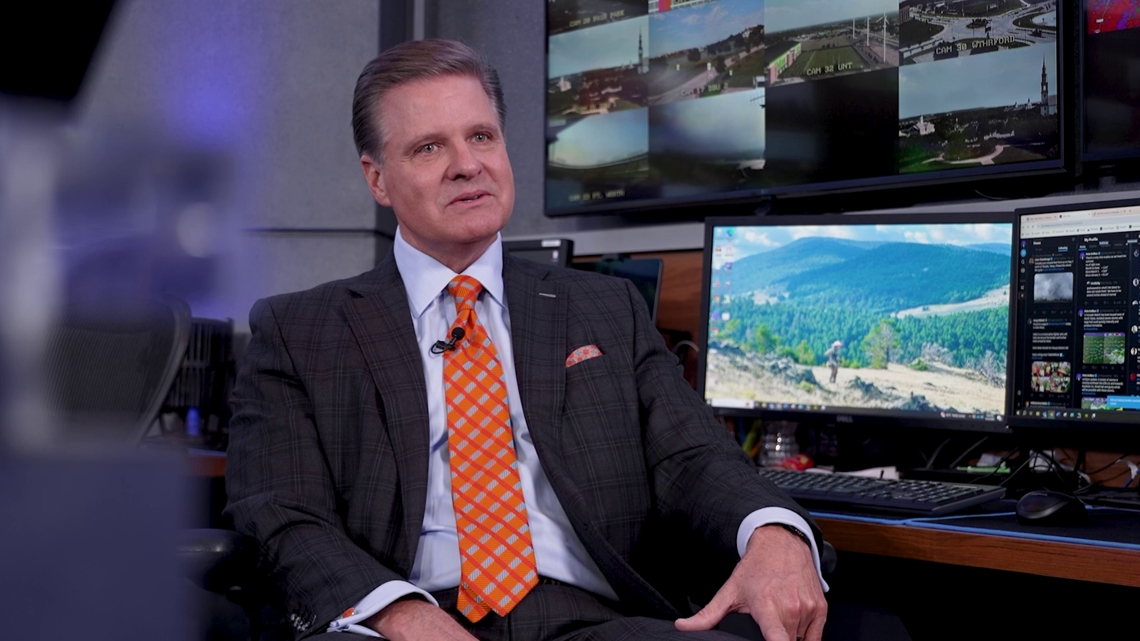
But Delkus knows. And he keeps close to the memories of those days when he still had his Big League dreams.
“Every once in a while, I look back [at my life[ as an 8- or 9- or 10-year-old,” he said. “And those are some good, meaningful times, and great memories to have.”
Ultimately, though, he knows that his life in baseball actually isn’t separate from his life on TV. Rather, he once again looks to the lessons he learned from his father and knows that the values instilled in him as a child led him to become the man North Texans now rely on to keep them safe from the elements.
“I think about that work ethic when I’m at the TV station,” Delkus said. “I think about the perseverance that I learned on those baseball fields, and how I’ve carried them through my TV career.”